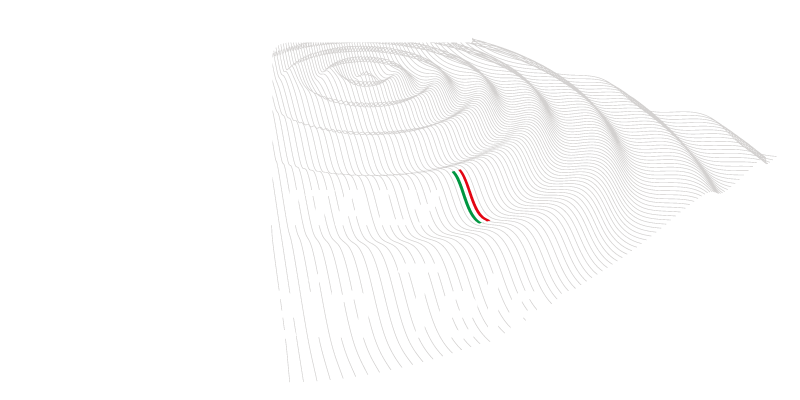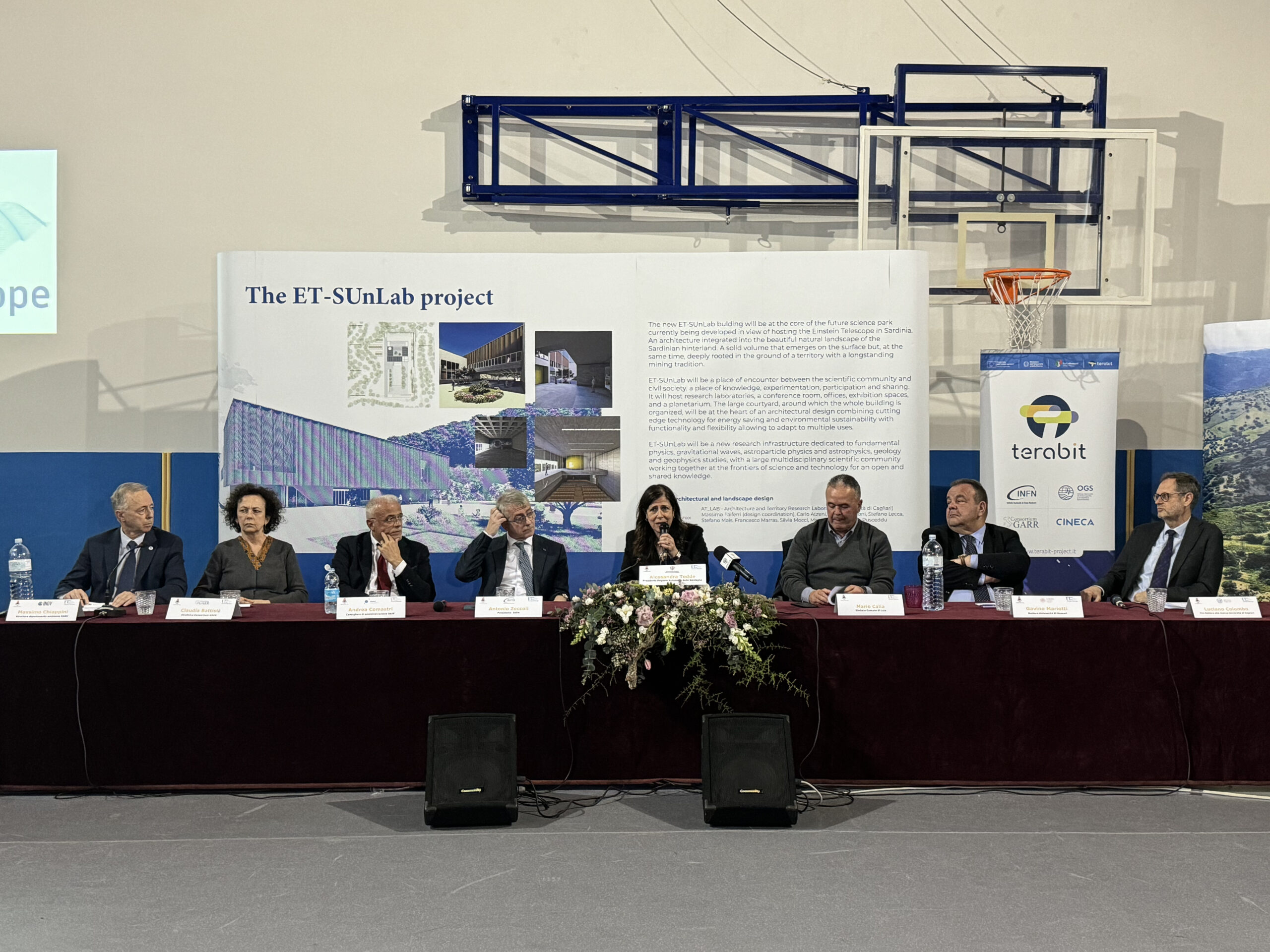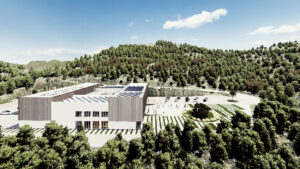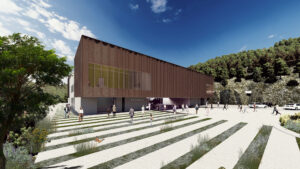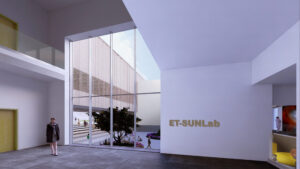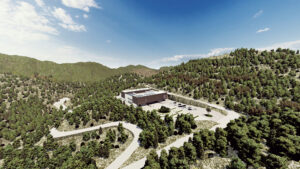On the afternoon of Thursday, March 20, at the Palestra Comunale of Lula (NU), the ET-SUnLab (Einstein Telescope Sardinia Underground Laboratory) project was publicly presented. This future research center will be built in the area of the Sos Enattos mine, which is a candidate to host the Einstein Telescope (ET) gravitational wave observatory.
The event opened with greetings from the mayor of Lula, Mario Calia, and the president of the Sardinia Region, Alessandra Todde, followed by speeches from the president of the National Institute for Nuclear Physics (INFN), Antonio Zoccoli, the board member of the National Institute for Astrophysics (INAF), Andrea Comastri, the director of the Environment Department of the National Institute for Geophysics and Volcanology (INGV), Massimo Chiappini, the Pro-Rector for Research at the University of Cagliari, Luciano Colombo, the Rector of the University of Sassari, Gavino Mariotti, and the director of Consortium GARR, Claudia Battista.
The second part of the event was dedicated to a roundtable discussion on the SUnLab project and local and national investments for ET, moderated by Rossella Romano (Rai TGR Sardegna), with contributions from Alessandro Cardini (INFN), Marco Pallavicini (INFN), Monique Bossi (INFN), Massimo Faiferri (University of Cagliari), and Raffaele Marras (Sardinia Region), followed by a question session from the audience.
The ET-SUnLab project – whose architectural and landscape design was developed by a working group from the AT Lab of the Department of Civil, Environmental, and Architectural Engineering (DICAAR) at the University of Cagliari, coordinated by Massimo Faiferri- includes the creation of a reception center and new research laboratories in the area occupied by the former RI.MI.SA. building, currently housing the SAR-GRAV laboratory. It also includes the construction of a multidisciplinary underground laboratory. SUnLab will host research and development activities for ET, low-noise physics experiments, and a geophysical observatory for studying the geodynamics of the Tyrrhenian Sea and the Earth’s internal structures. The facility will also serve as a hub for outreach projects aimed at schools and professional training programs. The project’s current timeline – funded with approximately 10 million euros from the Sardinia Region and an additional 10 million shared among INFN, INAF, and INGV, and in whose activities the Universities of Cagliari and Sassari will also collaborate – plans for construction to begin in 2025 and be completed by 2026.
The ET-SUnLab presentation event marked the conclusion of an important week for the Einstein Telescope project in Sardinia. On March 18-19, the Manifattura Tabacchi in Cagliari hosted the workshop of the Italian ET community, aimed at discussing the latest scientific and managerial developments related to the Italian candidacy. On March 19, at the Chamber of Commerce of Nuoro, a call for expressions of interest was presented for Sardinian companies interested in research and development activities for ET. Finally, on the morning of Thursday, March 20, Sardinia’s president, Alessandra Todde, signed the program agreement on the Einstein Telescope with the mayors of local communities and provincial capitals, establishing a multi-level governance framework to support and promote the candidacy of Sos Enattos.
ET-SUnLab rendering
«In recent years, we have spoken in terms of possibilities about what we could do and what the Einstein Telescope project could mean for the region. Today, we are here in Lula to talk about concrete actions, such as the creation of the ET-SUnLab research center, which we, as the Region, have co-financed with 10 million euros. These resources are in addition to the 350 million we have already allocated, funds that are available immediately, not at some distant point in the future», commented Alessandra Todde, President of the Sardinia Region. «I am pleased to highlight the unity we are witnessing at all institutional levels in advancing the candidacy of Sos Enattos. I am in constant contact with the Minister of University and Research, Anna Maria Bernini, and together we are putting our heart and soul into achieving this goal, beyond political affiliations».
«The SUnLab project is the first seed of the future Einstein Telescope research infrastructure, a seed that we are planting together today in Sardinia,», commented Antonio Zoccoli, President of INFN. «SUnLab will be a multidisciplinary center where research institutions and universities can conduct scientific work in an environment with unique characteristics. It will be a place to develop and test cutting-edge technologies essential for the Einstein Telescope, as well as a space where the scientific and civil communities can meet, connect, and collaborate. We will work to make SUnLab a leading scientific center, a hub for participation and dialogue, and a crucial first step in bringing Sardinia to the forefront of Europe with the Einstein Telescope», concluded Zoccoli.
«The National Institute for Astrophysics confirms its presence in Sardinia – where the SRT radio telescope in San Basilio is already operative – by bringing some of its most advanced technologies to SUnLab, such as adaptive optics for the precise control of starlight», said Roberto Ragazzoni, President of INAF. «Additionally, we will develop a prototype of an innovative telescope capable of simultaneously detecting the electromagnetic counterparts of gravitational waves along with the Einstein Telescope, reaffirming our Institute’s commitment to the new field of multi-messenger astronomy, an approach that aims to explore the cosmos using the most advanced and diverse instruments conceived to date».
«INGV joins the ET project with great enthusiasm, by contributing its resources, personnel, and scientific expertise», emphasized Massimo Chiappini, Director of the Environment Department at INGV. «The Institute’s contribution will be primarily focused on the geophysical and
environmental characterization of the site’s area of interest. Additionally, INGV has launched a major initiative, the Earth Telescope project, which will enable an increasingly comprehensive understanding of the phenomena governing the complex dynamics of the Earth system and the circumterrestrial space».
«The SUnLab laboratory project presented today is the result of extensive and in-depth research and conceptualization carried out by the University of Cagliari, through its expertise in architectural design. It is a concrete and effective example of the value our University brings to the broader Einstein Telescope project». added Luciano Colombo, Pro-Rector for Research at the University of Cagliari.
«As the University of Sassari, we strongly feel the weight and expectations of this initiative. ET-SUnLab is not just a research center; it represents a true revival plan for the people of Sardinia and the region itself. The possibility of hosting the Einstein Telescope here in the future would not only drive scientific progress but also foster territorial and economic development. The University of Sassari is ready to answer the call for this great collective endeavor». concluded Gavino Mariotti, Rector of the University of Sassari.
